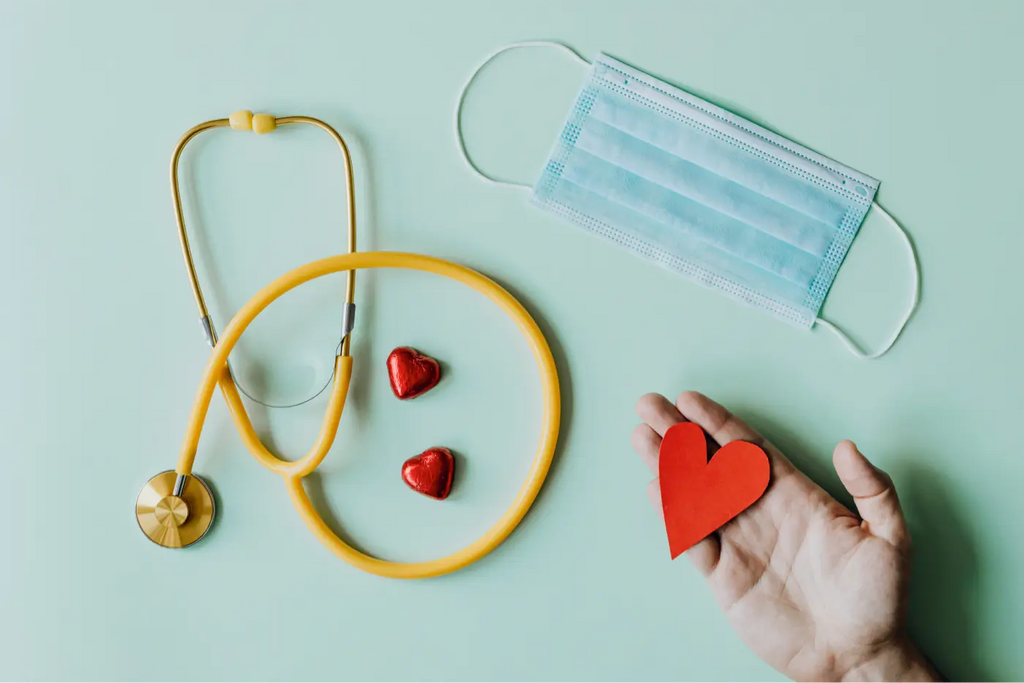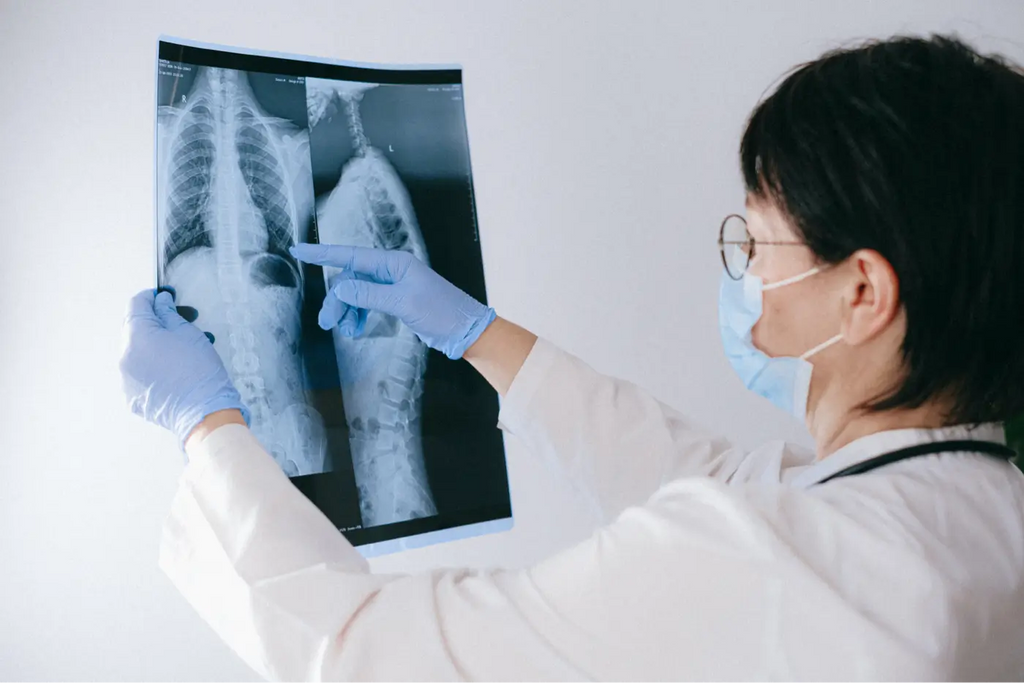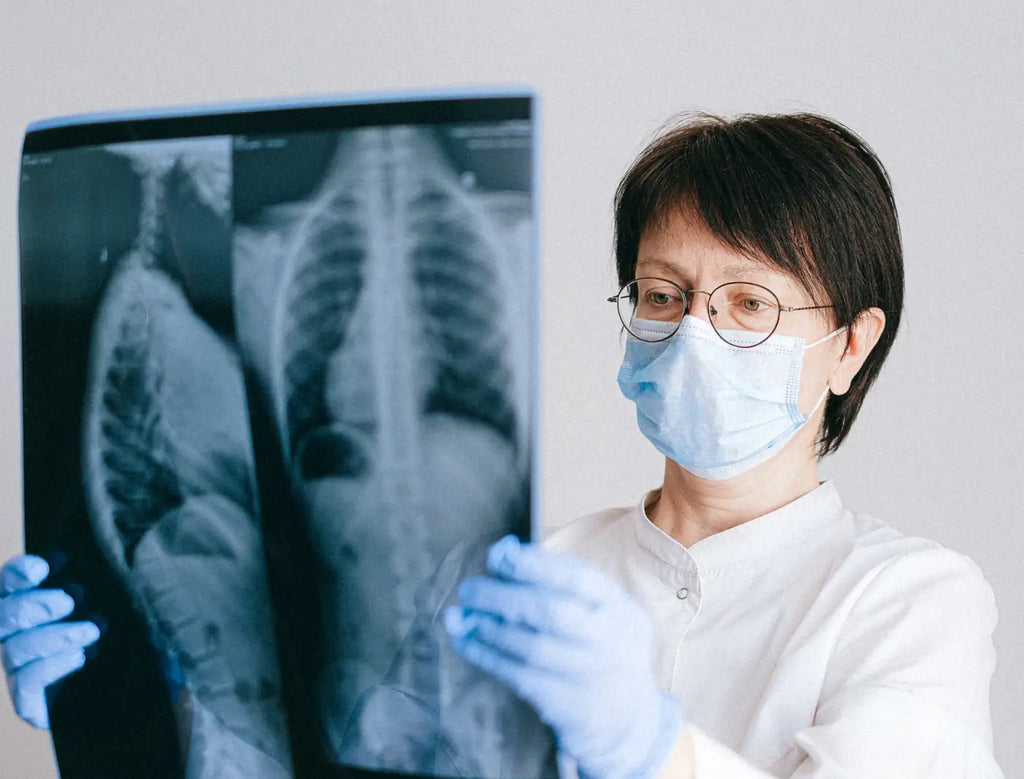
Emphysema is a lung disease that affects the alveoli of the lungs and interferes with a person's ability to breathe properly.
Today, we are going to see together what it is, its causes, its symptoms and its possible treatments so that you can easily understand this respiratory disease.
Emphysema is often associated with chronic obstructive pulmonary disease, an umbrella term for a group of lung conditions that cause airflow limitation in the lungs.
You can find our dedicated article to understand what COPD is .
Definition of emphysema
Emphysema is part of chronic obstructive pulmonary disease (COPD), a group of breathing disorders characterized by narrowing of the airways in the lungs.
This narrowing causes a decrease in airflow when breathing, leading to discomfort and difficulty in breathing.
In the case of emphysema, the destruction of the walls of the pulmonary alveoli is responsible for the limitation of airflow.
The alveoli are small air sacs located at the end of the bronchioles, where gas exchange between the oxygen we breathe and the carbon dioxide produced by our body takes place.
When the walls of the alveoli are damaged, they lose their elasticity and fill with air, which causes the air spaces to expand and the airflow to become obstructed.

Causes of emphysema
Several factors can contribute to the development of emphysema, including:
- Smoking : Cigarette smoke contains toxic substances that irritate and damage the lungs.
Smoking is the main cause of emphysema and other COPDs. - Air pollution : Long-term exposure to fine particles and other air pollutants can also irritate and damage the lungs.
- Genetic factors : Some people may be more susceptible to the effects of smoking or pollution due to their genetic makeup.
For example, a small percentage of people with emphysema are deficient in alpha-1 antitrypsin, a protein that protects the lungs from damage caused by inflammation. - Age : The lungs naturally lose their elasticity with age, which can increase the risk of developing emphysema in older people.

Emphysema symptoms
Symptoms of emphysema can vary from person to person and gradually get worse over time.
Common symptoms include:
- Shortness of breath: Difficulty breathing, especially during physical exertion, is one of the first signs of emphysema.
As the disease progresses, this shortness of breath may also occur at rest. - Persistent cough : People with emphysema may have a chronic cough with or without the production of mucus.
- Wheezes : Wheezes may be heard when breathing due to narrowing of the airways.
- Cyanosis : A bluish discoloration of the skin and mucous membranes may occur due to a decrease in oxygen in the blood.
- Weight loss : Emphysema can lead to loss of appetite and muscle weakness, which can cause unintended weight loss.

Diagnosis of emphysema
Diagnosis of emphysema is usually made from the patient's medical history, physical exam, and lung function tests. These tests may include:
- Spirometry : This test measures how much air the lungs can hold and how quickly the air can be expelled. It detects and quantifies airway obstruction.
- Chest x-ray : A chest x-ray may show enlargement of the air spaces and flattening of the diaphragm, hallmarks of emphysema.
- Computed tomography (CT) : CT provides more detailed images of the lungs and can help identify the severity and distribution of emphysema.
- Pulse oximetry : This non-invasive test measures the level of oxygen in the blood and can indicate if the lungs are exchanging gas properly.
Emphysema treatment
Although there is no treatment to reverse the lung damage caused by emphysema, it is possible to take steps to slow the progression of the disease and improve quality of life.
Treatment options include:
- Quitting smoking : Quitting smoking is the first step in slowing the progression of emphysema and preventing further complications.
- Medications : Bronchodilators, inhaled corticosteroids, and phosphodiesterase-4 inhibitors can help relieve symptoms by relaxing and opening the airways.
- Pulmonary rehabilitation therapy : This multidisciplinary program includes education, exercise, psychological support and training in breathing techniques to help patients better manage their disease.
- Oxygen therapy : Administration of supplemental oxygen may be necessary for people with low blood oxygen levels.
- Surgery : In some cases, surgery such as lung volume reduction or lung transplantation may be considered to improve lung function.
In prevention, you can prefer days when the pollution is less important to avoid inflammations.
You can also equip yourself with a suitable anti-pollution mask when traveling in town.
In any case, if you have the slightest doubt after reading this article, we advise you to make an appointment with a specialist who will be able to provide you with all the answers you expect, and take care of yourself.
